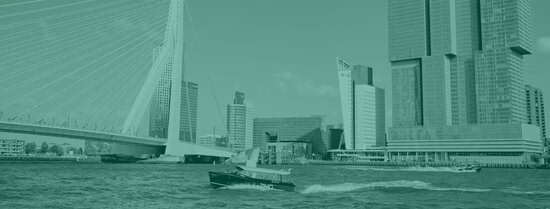De Coronacrisis is misschien wel de grootste crisis van onze generatie. De keuzes die mensen en landen de komende weken maken, zullen de wereld blijvend veranderen. Niet alleen het gezondheidsstelsel, maar ook de economie, politiek en cultuur. We moeten snel handelen, maar moeten ook de langetermijngevolgen van onze beslissingen niet over het hoofd zien. Dat schrijft Yuval Noah Harari, professor en bestsellerauteur van Sapiens en Homo Deus. Lees zijn hele artikel gratis in de Financial Times.
Hoge prijs
In het artikel schetst Harari hoe sommige overheden ervoor kiezen om hun burgers continue te monitoren in hun strijd tegen het Coronavirus. Technologie maakt het mogelijk om met smartphones en gezichtsherkenning mensen te volgen, te zien met wie ze in contact komen en zelfs hun lichaamstemperatuur en medische conditie te meten. Wellicht effectief in de strijd tegen Corona, maar tegen de prijs van een angstaanjagend nieuw controlesysteem. Terwijl je voor medewerking van iedereen vooral vertrouwen nodig hebt, in plaats van controle.
Vertrouwen
“People need to trust science, to trust public authorities, and to trust the media. (…) Normally, trust that has been eroded for years cannot be rebuilt overnight. But these are not normal times. In a moment of crisis, minds too can change quickly”, aldus Harari. “You can have bitter arguments with your siblings for years, but when some emergency occurs, you suddenly discover a hidden reservoir of trust and amity, and you rush to help one another. Instead of building a surveillance regime, it is not too late to rebuild people’s trust in science, in public authorities and in the media. We should definitely make use of new technologies too, but these technologies should empower citizens. I am all in favour of monitoring my body temperature and blood pressure, but that data should not be used to create an all-powerful government. Rather, that data should enable me to make more informed personal choices, and also to hold government accountable for its decisions.”
Solidariteit
Een tweede belangrijke keuze die we volgens Harari moeten maken is die tussen nationalisme of wereldwijde solidariteit. “Humanity needs to make a choice. Will we travel down the route of disunity, or will we adopt the path of global solidarity? If we choose disunity, this will not only prolong the crisis, but will probably result in even worse catastrophes in the future. If we choose global solidarity, it will be a victory not only against the coronavirus, but against all future epidemics and crises that might assail humankind in the 21st century.”
- Meer informatie
Dit artikel wordt gebruikt in ons Executive Program. Hoe ga je als bedrijf en als business leader om met maatschappelijke uitdagingen? Hoe zorg je dat je de organisatie zo goed mogelijk voorbereidt op de toekomst? Dat er bestaansrecht is voor de korte én de lange termijn? En vooral dat je recht doet aan alle belanghebbenden van een organisatie: de samenleving, medewerkers, klanten, leveranciers en de aandeelhouders of vermogensverschaffers. Hoe geeft je ruimte en vertrouwen en deel je verantwoordelijkheid? Op deze vragen gaat het Executive Program in.
Bekijk hier het Executive Program 'Corporate Social Responsibility'.

